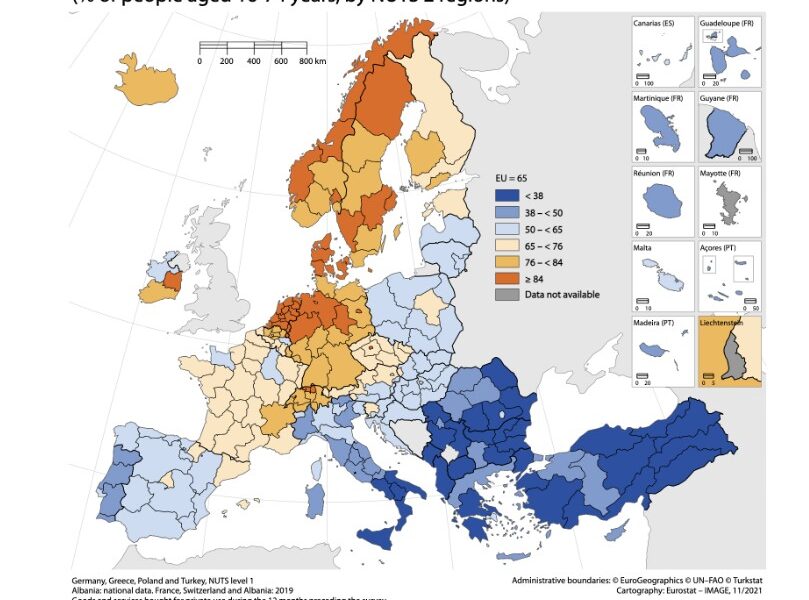Greece and Cyprus are among the EU countries recording low numbers of people engaging in online shopping for 2020, well below the EU average, says Eurostat.
 According to the latest survey data, central Greece recorded below 38% of adults (aged 16-74 years) who engaged in on line shopping whilst northern Greece and Cyprus recorded between 50 to 65% maximum.
According to the latest survey data, central Greece recorded below 38% of adults (aged 16-74 years) who engaged in on line shopping whilst northern Greece and Cyprus recorded between 50 to 65% maximum.
In 2020, some 65% of all adults (aged 16-74 years) in the EU bought/ordered goods or services on the internet during the 12 months prior to the survey. Younger people, aged 25-34 years were 2.5 times more likely to have made use of the internet to shop (83%) than people aged 65-74 years (33%).
Online shopping has become more common in the EU as the use of the internet spreads to all ages. Consumers value the accessibility to a wide range of products at any time, anywhere, with the added benefit of special prices. Events like Black Friday, as well as Cyber Monday, are some of the occasions where online shopping takes precedence in the calendar.
The Danish capital region of Hovedstaden recorded the highest propensity to use e-commerce (91%) across all EU regions, followed by the Danish region of Midtjylland and the Dutch region of Utrecht, both 90%.
In contrast, four regions in Bulgaria had the lowest share in 2020: Severen tsentralen (25%), Yuzhen tsentralen and Yugoiztochen (both 26%) and Severozapaden (27%).
When surveyed in 2020, 19% of all adults said they never made an online purchase. There were 11 NUTS level 1 regions in the EU for which the most common response was to have never made an online purchase: every region of Bulgaria and Romania, in Sud and Isole (Italy), as well as in (Central) Greece, Cyprus and Região Autónoma da Madeira (Portugal).
[Eurostat]


